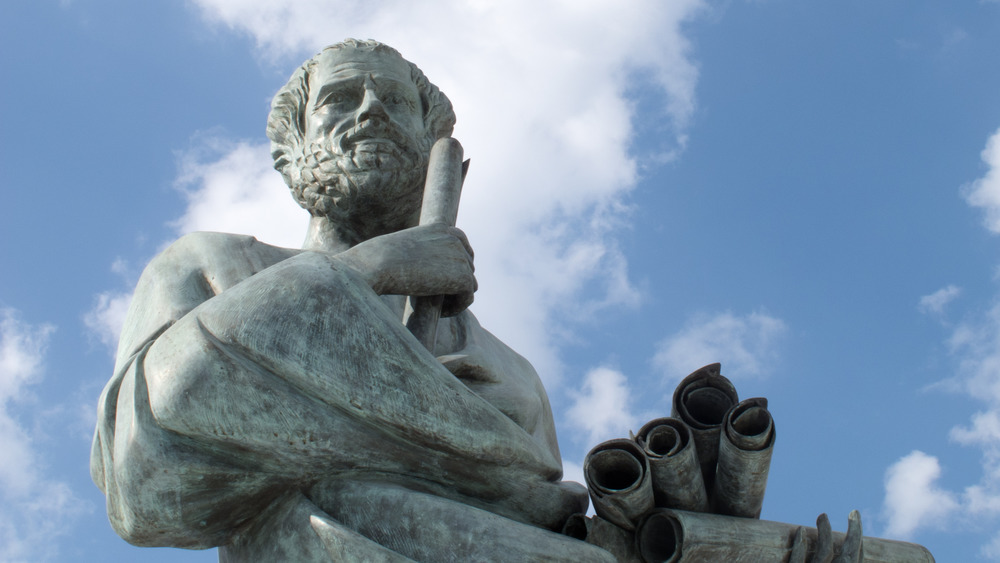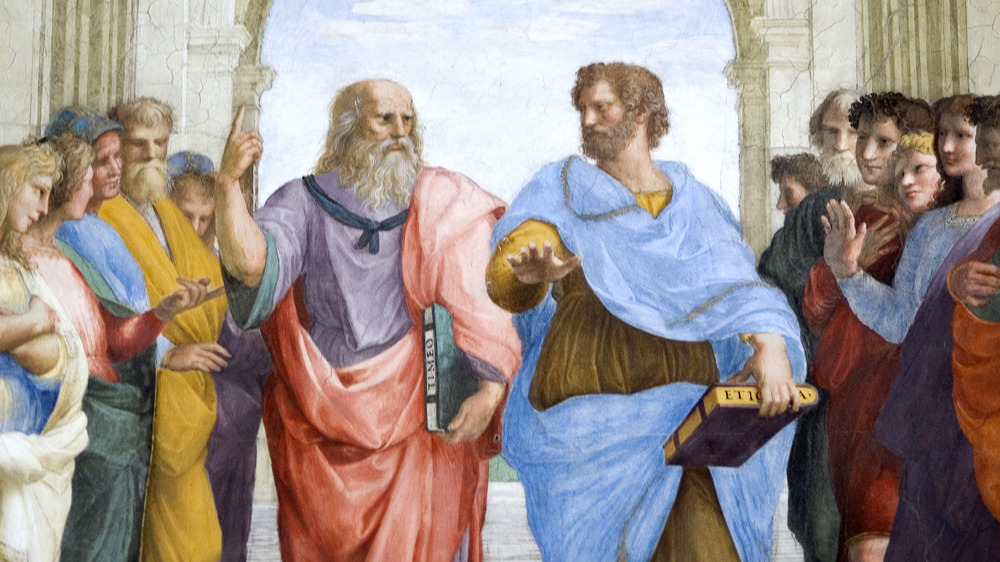These Were Aristotle's Beliefs About Women
There's no doubt that the ancient Greeks have had a profound influence on Western society. From our governance systems to the shapes of our buildings, nearly everything in modern culture has been touched in some way by the Greeks. Among the ancient Greeks, the most influential individuals were the philosophers — and, among them, Aristotle is one of the most prominent. Aristotle's views on ethics, logic, and metaphysics have played a central role in Western thought, even today. Due to his brilliant ideas, it's easy to assume that Aristotle was pretty much right regarding just about everything. But that's a major mistake. One critical weak point in Aristotle's philosophy was his perspective on women.
Dr. Charlotte Witt's essay "Feminist History of Philosophy" summarizes some of the most misogynistic moments in Aristotle's philosophy, many of which have been overlooked. To start with, Aristotle believed that a man's courage lies in his ability to command, while a woman's lies in her ability to obey. Aristotle apparently held this belief so central that he thought it should apply to fiction as well; including a too-brave or too-clever female character in a tragedy would be inappropriate, Aristotle wrote.
So far, Aristotle's level of sexism resembles what we've (unfortunately) come to expect from many male historical figures. But, as it turns out, Aristotle's misogyny went far deeper.
Aristotle viewed women as 'deformed' men with fewer teeth
Dr. Witt also considered Aristotle's views on motherhood. According to Aristotle's philosophy, mothers only give matter to their offspring, while fathers provide the form. In other words, a mom may create your body, but a dad is the one who gives you your innate humanness. Even worse, Aristotle described women as incomplete men — or, "as it were, a deformity." That belief about deformity led Aristotle to some unusual conclusions. For example, Aristotle apparently believed that women had fewer teeth than men — which is false, and pretty silly.
Overall, Aristotle's philosophy of gender can best be summarized by his assertion that "a woman is perhaps an inferior being." How courteous of him to include the word "perhaps," right?
Now, some may wish to brush aside Aristotle's sexist beliefs by saying that the philosopher was simply a product of his time. But one essay from the Journal of the History of Philosophy casts doubt on this notion. The essay, written by Dr. Nicholas D. Smith, points out that Plato's views on women were far more progressive than those of his student Aristotle. Plato believed that women and men had similar natures (apart from physical strength), and that both sexes should occupy similar roles in the state. Aristotle believed the opposite: Women were naturally inferior and ought to play a subservient, domestic role. Learning this, Aristotle's intentional break from his teacher's belief in gender equality becomes much more startling and objectionable.

